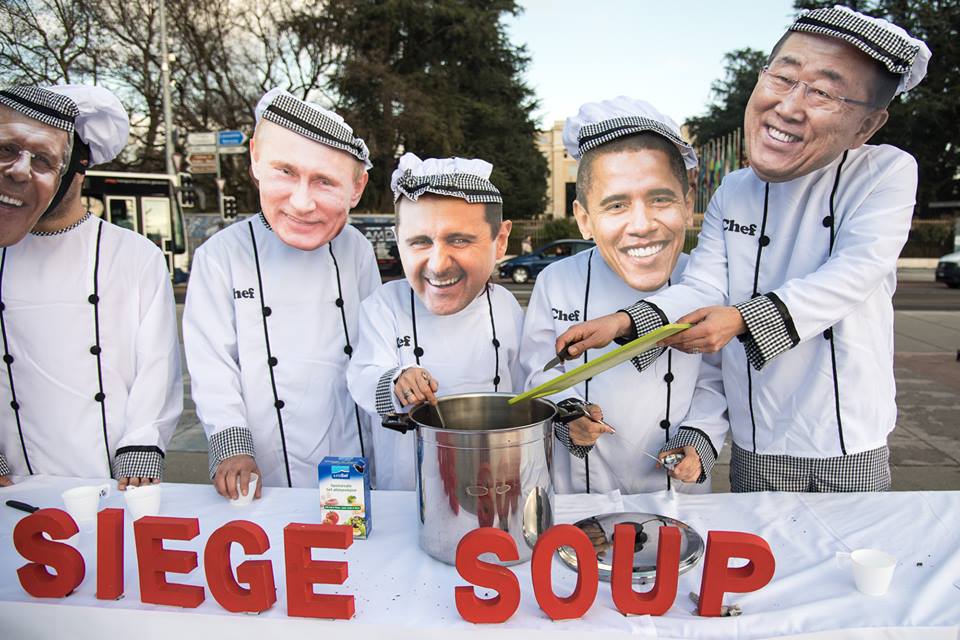By Brittani Howell
Impunity Watch Reporter, The Middle East
DAMASCUS, Syria – On Friday, the opposition group, High Negotiations Committee, agreed to attend the United Nations peace talks in Geneva, at the last minute. However, the HNC still refused to participate in peace talks until there is a reprieve in the bombings of civilians. The HNC went to Geneva to press their case to the United Nations as well as the public.

The opposition is only interested in discussing stopping bombings, releasing political prisoners, and lifting the government siege of towns. Civilian society activists supported the oppositions ban of peace talks and stood outside the United Nations holding flags and banners, one of which stated ” UN stop talking and start acting.”
Salma Kahale, a Syrian activist who works for Planet Syria, stated, “It’s not that we don’t want negotiations, but we want them to succeed.” The civil society groups urge that steps to relieve the suffering of civilians are taken before political negotiations.
One group of activists served “siege soup”, a wan recipe made of salted water, herbs, and bits of grass, which is eaten by Syrians in besieged towns to attempt to ward off starvation. They also dressed up as the world leaders they fault for the misery that Syrians suffer. The masks of the presidents of Russia and the United States; the foreign minister of Russia, Sergey V. Lavrov; United Nations Secretary General, Ben Kimoon; and Syrian President Bashar al-Assad, donned beaming smiles.
Wael Mashati, a refugee dressed as Mr. Lavrov, stated that the masks represent the “laughing at the suffering of the Syrian people.”
The Syrian government delegations arrived for the third round of negotiations with the United Nations mediator on Friday. After two hours after talks with the United Nations special envoy, Steffen de Mistura, the delegation left the meeting room.
While the Syria government was meeting with the U.N. mediator, Syrian and Russian forces continued their siege on as many as 15 rebel held towns, furthering the starvation of civilians. Since the last peace talks in January 2014, the Syrian government has conducted chemical attacks, dropped barrel bombs – unguided, makeshift cylinders of explosives – on rebel towns and systematically starved civilians. In the same time frame, rebel groups have besieged government held towns and launched rockets into civilian neighborhoods.
Since the beginning of the conflict more than 250,000 have been killed, hundreds of thousands of refugees have fled to Europe and civilians have been displaced. Mohannad, a doctor in the besieged town of Moadhamiyeh, told the New York Times, that nine civilians in Moadhamiyeh have died as a result of malnutrition. In addition, he also stated that ” people are dying from barrels and from the cold. People in the street don’t know where to go some fled to another part of Moadhamiyeh and others are sleeping in the streets.”
For more information, please see:
Associated Press – UN Hosted Syria Peace Talks Begin in Geneva – 29 January 2016
Reuters – U.N. Launches Syria Peace Talks as Opposition Ends Boycott – 29 January 2016
The New York Times – Syria Peace Talks Begin, With Only One Side at the Table – 29 January 2016
The Washington Post – Syria Peace Talks Open in Disarray with Opposing Groups Staying Away – 29 January 2016



